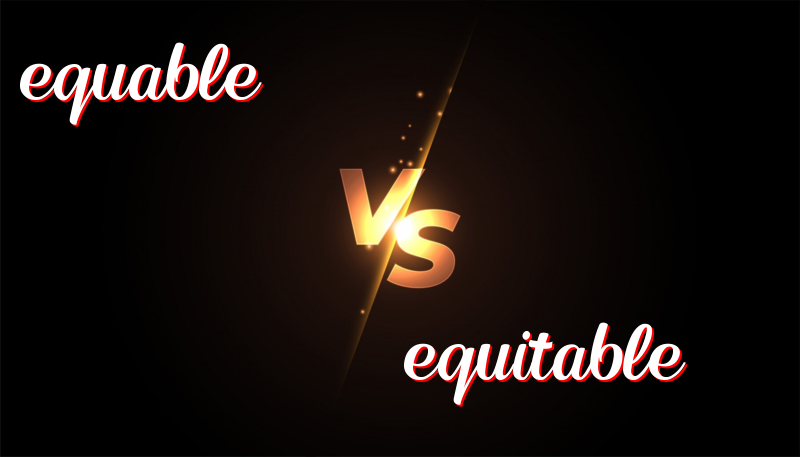Differentiating Between Equable and Equitable: A Simple Guide
Understanding Equable vs. Equitable
Sometimes, words look alike, but they mean different things. “Equable” and “Equitable” are two such words. Let’s learn about their histories, how to use them, and a trick to remember their difference.
History of the Words
Equable comes from the Latin word “aequabilis,” which means even or smooth. It has been used in English to describe something calm or steady.
Equitable comes from the Latin word “aequitas,” which means fairness. It has been used in English to describe fairness and justice.
How to Use Them
Equable
“Equable” is used when talking about calmness or evenness, often about weather or someone’s mood.
- The climate in the area is equable, without too much heat or cold.
- Her equable nature helps her stay calm during exams.
- We enjoyed an equable morning walk at the beach.
- His equable voice made everyone feel at ease.
- The sea was equable, with gentle waves.
Equitable
“Equitable” is used when talking about fairness or equal treatment, like in sharing or dealing.
- The teacher made an equitable decision for all students.
- They agreed on an equitable way to share the tasks.
- Everyone hoped for an equitable result in the competition.
- The judge gave an equitable sentence that was fair to all parties.
- We want to find an equitable solution to the problem.
Trick to Remember the Difference
Think of “equable” with the “b” for “balanced” or “calm.” Think of “equitable” with the “t” for “treat” equally and fairly.
Summary
In summary, use “equable” to talk about calmness or steadiness, like the weather or someone’s mood. Use “equitable” when talking about fairness or fair treatment, like in sharing or making decisions. Remembering their roots and using the trick can help tell them apart.

Leave a Reply
You must be logged in to post a comment.